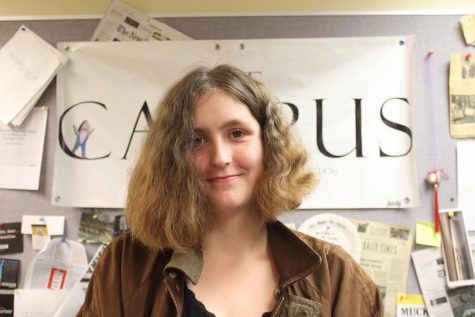‘CampusCare’ for all
Dean for Student Life Trae Yeckley and the Student Life team introduced CampusCare — a new mental and physical health resource for the student body — on Wednesday, Feb. 1.
“I’m really excited about CampusCare so students have the option to utilize this service anytime, day or night, from the comfort of their room or somewhere else,” Yeckley said.
CampusCare is a 24/7 telehealth company used by colleges across the U.S. The service is free to students, with each student having 36 available sessions annually.
“The thing that we’re most excited about is the fact that it is 24/7 access to virtual mental health and medical care,” said Yeckley. “So students are able to text into the app saying, ‘Hey, I’m feeling a little depressed,’ and they automatically get connected with a physician who’ll check them out and then have a follow-up virtual therapy appointment and go from there. There’s even the opportunity of some medication management through that as well because you’re working with a physician and a mental health provider.”
In this regard, CampusCare serves as an extension of the Counseling and Personal Development Center as well as one to Winslow Health Center, according to Yeckley. Students can text symptoms pertaining to their physical illness and then connect with a physician who can offer a diagnosis and prescribe antibiotics, for example, to be picked up immediately from a local pharmacy.
A large reason that telehealth is a “necessity” on campus is the country-wide shift of mental health professionals leaving in-person offices for the online therapy format, according to Yeckley.
“Prior to COVID, you had to have special certification in order to provide virtual therapy and not a lot of insurance covered that,” Yeckley said. “But since COVID hit, everything went virtual. A lot of mental health practitioners have moved from in-person counseling to virtual counseling because it’s more cost-effective for the clinician. If they can work from home without having the costs of having to rent the office space and hiring people to manage phones while also working in the comfort of their own homes, it inclines clinicians to move their work.”
This shift has been taking effect on the student body, according to Ethan Borsh, ’25.
“The school is in a tricky position,” Borsh said. “It’s a series of unfortunate events with COVID and then counselors leaving and going to different places.
However, I think we desperately need in-person counselors, too. I’ve had several friends who need in-person help and can’t get it.”
CampusCare is not the only resource being planned — the college is making an effort to create contracts with local therapists and companies as off-campus possibilities for students to combat “limitations with the CPDC due to the way the mental health profession is moving to online,” according to Yeckley. Combining free, in-the-area therapy and the Gator Shuttle, in-person therapy is likely to be more available than last semester.
“I’m glad that the choice of telehealth therapy exists for those who prefer it, and I can see the appeal of wanting to stay in your own room during a session,” said Corey Kay, ’25. “I know that for myself and many others, in-person counseling and therapy helps a lot more because we can establish direct communication with someone who can see us. It brings that human element of counseling that can be lost when you speak through a screen, which is why I’m hopeful for more in-person counselors for students.”
Both CampusCare and the contracts with local mental health care providers are just the beginning of a new Student Wellness Action Plan that is in the works. Having more student resources are “building blocks to what students are asking for,” according to Yeckley.
“So we talk about wellness on campus, and a lot of it has to do with mental and physical health,” Yeckley said. “We’re really excited to expand that to include things like spiritual wellness. We’ve had students ask about having some seminars on technology wellness and setting boundaries with technology. We’re at the beginning phase of actually putting it together with our Associate Dean of Wellness stretching her back. She’s been talking with different student groups and RAs as to what wants to be seen. We’re really excited about the Student Wellness Action Plan and all of the resources we’re focusing on giving students.”

Elanor Bonta is a first-year from Shanghai, China. She is majoring in psychology and minoring in biology.







